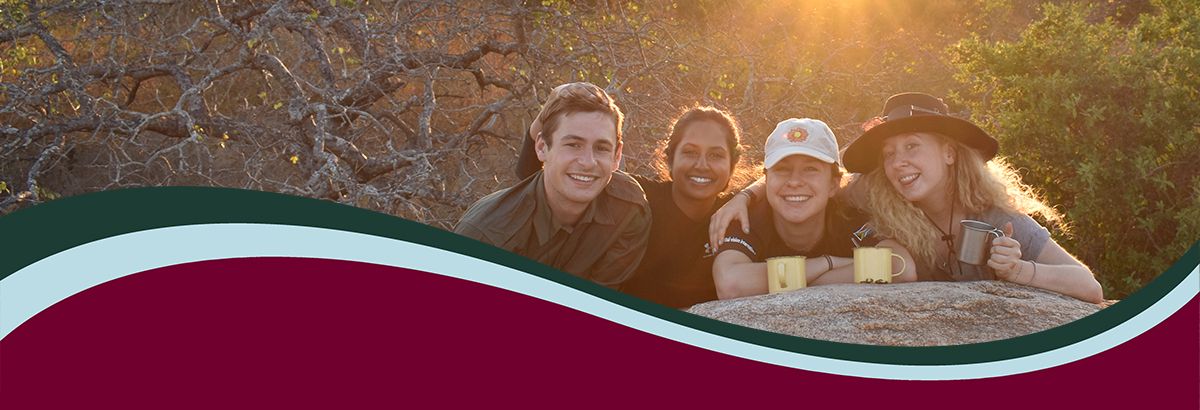Fall 2025 Courses
Telling True Stories: Global Perspectives on Settler Colonialism
Andi Hoelzel
How can an honest exploration of settler colonialism and its impacts help us situate our own identities within complex global issues and enable us to begin addressing these issues? In this course, students will engage with the multidisciplinary field of Settler Colonial Studies through various media. Students will explore theories of settler colonialism; examine current and historical settler colonial projects through specific case studies; analyze various aspects of their own identities and positionality in relation to settler colonialism; explore what is meant by resistance, decolonization, and re-indigenization; and imagine possibilities across disciplines for a more just and equitable future.
Reproductive Justice
Jessica Liddell
This class is an interdisciplinary course exploring reproductive justice, defined as: the right to have children, the right to not have children, and the right to raise children in safe and healthy environments. Students will become familiar with the major concepts and debates in reproductive justice and will analyze how health inequality intersects with gender, sexual, racial, ethnic and economic identities and status. We will explore a wide range of reproductive justice topics, and critique the role many professions have played in perpetuating reproductive oppression, while also examining how we can move forward and promote reproductive justice for all.
Music, Meaning, and Manipulation
James Randall
We are inundated with music in our daily life, but few consider how it influences our thoughts and behaviors. In the media, music is used in sophisticated ways to sell us products, political candidates, and belief systems. We are being manipulated. While music may seem like magic, there’s a careful process behind it. This course examines research in the fields of musicology, neuroscience, anthropology, psychology, advertising, and film studies to understand the tricks of the trade. Assignments include short essays, class presentations, and group creative projects. No prior musical experience is required.
Extreme climate events: observations, vulnerability, and preparedness
Jinyang Du
Global society as a whole has become more vulnerable to climate extremes which are intensified under warming climate. Advances in satellite remote sensing and big data analysis provide new opportunities for mapping, analyzing, and predicting the extreme events (e.g., 2017 猎奇重口 flash drought, 2023 Beijing and Hebei Floods, and 2023 Canadian wildfires). Students will understand the distribution, severity, trends, and causes of climate extremes and learn cutting-edge information technology for timely detecting, monitoring, and predicting the events. Based on the quantified forecasts and social-economic-environmental impact assessments, students will discuss innovative strategies to improve our preparedness for future climate extremes.
We’re with the Banned: Defending Diverse Books and Humanity’s Right to Read
Dana Fitz Gale
Dr. Rudine Bishop equates books to mirrors in which readers see themselves: “in that reflection, we see our own lives and experiences as part of the larger human experience.” Books can also be windows, she says, granting us insight into other lives so we can “understand the multicultural nature of the world.” This course will explore books both as windows and as mirrors. We’ll examine the sociopolitical factors contributing to book bans, past and present. Together, we’ll read and discuss contemporary banned books by diverse authors and learn to stand up for a fundamental human right: the freedom to read.
Gender and Sexuality in the Global Context
Beth Hubble
This seminar offers an interdisciplinary perspective on global constructions of gender and
sexuality with a focus on indigenous experiences. During the first half of the course, lectures,
videos, readings, and discussions about non-Western and indigenous cultures provide students
a more nuanced understanding of the diverse constructions of genders and sexualities around
the world and introduce them to numerous academic disciplines, including anthropology,
history, literature, environmental sciences, disability studies, and sociology. During the course’s
second half, students craft a service-learning project focused on creating change around an
issue connected to topics from the first half of the course.
Immigrants and Refugees: Past, Present, and Future
Gillian Glaes
Given the current refugee crisis occurring internationally and the over 120 million displaced persons worldwide, this course will examine issues related to the contemporary migration crisis that the global community is facing. To provide a comparative historical and global perspective, students will explore the history of refugees and migration through several case studies, ranging from interwar and postwar Europe to Cuba and Sudan. The course encourages students to draw comparisons between different countries and time periods while also providing the opportunity to explore various case studies involving refugees, asylum seekers, and migrants. As Missoula has resettled hundreds of refugees, including actively since 2016, the course will also provide the opportunity to hear from organizations involved in those efforts, such as the International Rescue Committee and Soft Landing Missoula.
